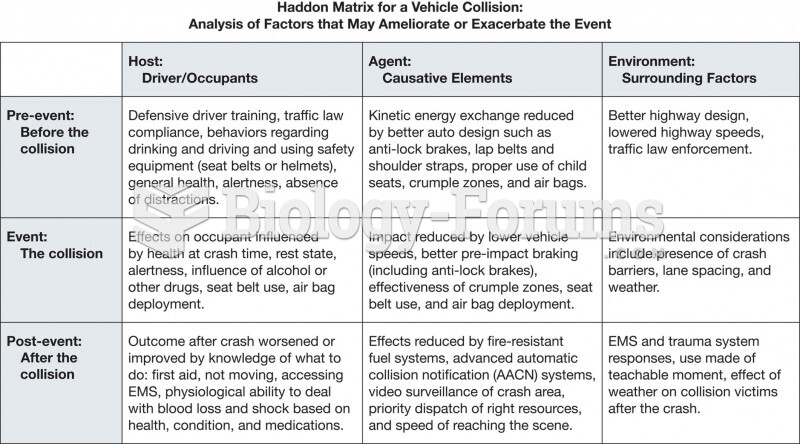|
|
|
When blood is exposed to air, it clots. Heparin allows the blood to come in direct contact with air without clotting.
To prove that stomach ulcers were caused by bacteria and not by stress, a researcher consumed an entire laboratory beaker full of bacterial culture. After this, he did indeed develop stomach ulcers, and won the Nobel Prize for his discovery.
Less than one of every three adults with high LDL cholesterol has the condition under control. Only 48.1% with the condition are being treated for it.
More than 30% of American adults, and about 12% of children utilize health care approaches that were developed outside of conventional medicine.
During pregnancy, a woman is more likely to experience bleeding gums and nosebleeds caused by hormonal changes that increase blood flow to the mouth and nose.







